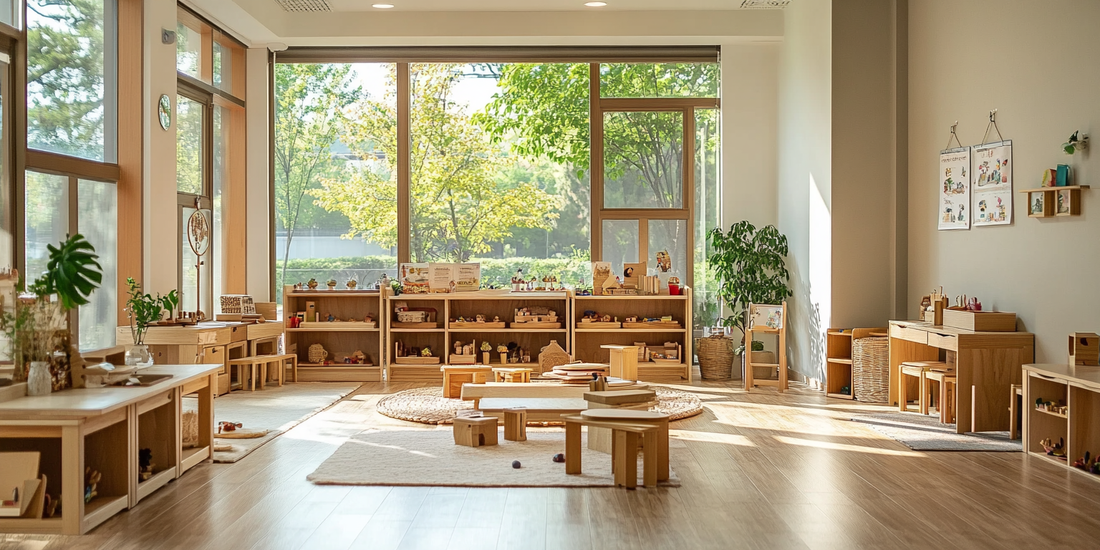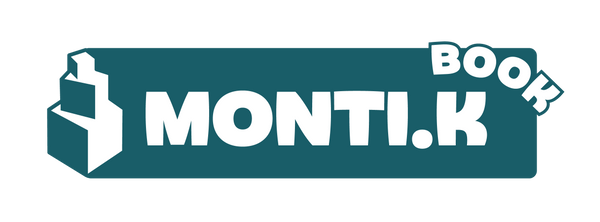
진짜 교육의 핵심은 환경입니다
Share
우리는 지금 변화의 시대를 살고 있습니다.
기술이 빠르게 진보하고 AI가 마치 모든 것을 대체할 것만 같은 불확실한 시대
우리는 아이를 어떻게 바라봐야 하고,
교육은, 과연 무엇에 중심에 두어야 할지 고민이 많아지는 것 같습니다.
이럴 때 일수록 교육의 본질로 다시 돌아가야 되지 않을까요?
몬티케이 교육철학의 기초를 담은 "흡수하는 정신" 에서 마리아 몬테소리 박사는 이렇게 말합니다.
아이의 성장은 태어나는 순간부터 시작됩니다
많은 부모님들께서
아이들의 제대로 된 교육은 언제부터 시작하는게 좋은지 묻곤 하세요.
말도 하지 못하고, 아직 움직이지도 못하는 신생아.
그러나 그 안에서는 이미 언어, 감정, 감각, 가치관, 자아라는
인간 삶의 뿌리가 형성되고 있습니다.
아이에게 언어를 가르쳐준 사람은 없음에도
두 살짜리 아이는 부모가 쓰는 언어를 이해하고
옹아리를 지나, 단어를 내뱉기 시작하구요.
곧 짧은 문장을 이야기 하기 시작하지요.
교육의 핵심은 가르침이 아닌, "환경"입니다.
아이를 위한 진짜 교육은
어른이 말하는 교육이 아니라,
아이 안에서 스스로 배울수 있도록 교육을 도와주는 것 입니다.
글자, 숫자, 공간, 관계, 감정, 문화
이것들을 아이에게 인위적으로 가르치는 것이 아니라,
준비된 환경 속에서 자발적으로 아이가 받아들일 수 있도록 하는 것.
그래서 교육은 지식을 전달하는 사람이 아니라,
아이를 위한 환경을 준비하는 것
그리고 아이가 가진 개별적인 시기를 존중하며
관찰하며 기다리는 훈련된 교사가 필요합니다.
몬티케이(monti.K)는 몬테소리 교육철학을 실천합니다.
몬티케이에서는 아이 안에서 벌어지는 ‘위대한 일’ 이
방해받지 않고, 왜곡되지 않도록 조용히,
그리고 세심하게 지켜보는 것을 교육의 출발점으로 삼고 있습니다.
준비된 환경에서 아이가 자발적으로 활동하고
책을 읽고, 이야기를 나누고, 생각을 말로 표현하는 과정 속에서
아이는 자율적으로 사고를 정리하고 자기 안의 언어와 감정을 발견합니다.
그렇게 스스로를 세워가는 힘이 자라날 때,
그 아이는 결국 세상을 더 나은 방향으로 움직이는
가장 조용하고 강력한 힘이 될 거라 믿습니다.
중요한 것은 우리의 태도입니다.
이 놀라운 발달은 누가 가르쳐서가 아니라,
아이 안에 존재하는 ‘내면의 선생’이 주도한 결과입니다.
아이는 자연이 정해 놓은 리듬에 따라,
스스로 흡수하고, 연결하고, 성장하는 존재라는 점을 이해 하는 것
따라서 여기서 어른의 역할은
아이들이 스스로 흡수할 수 있는 환경을
만들어 주는 것는 것이 몬테소리 교육의 핵심이라 할 수 있습니다.
우리가 할 수 있는 가장 중요한 교육은
아이가 자라는 매일의 순간을
존중과 기다림으로 함께 하면서
가르치기보다 지켜봐주고
말해주기보다 물어봐주며
대신 해주기 보다는
스스로 할수 있도록 기다려 줄때
아이들이 각자 자신만의 리듬으로 훨씬 더 크게 자란다고 믿습니다.
<English Version>
We’re living in a time of rapid change.
Technology advances by the day, and with AI reshaping how we live,
the future feels both exciting and uncertain.
In moments like this, we find ourselves asking:
"How should we see children?"
"What should education truly focus on?"
When in doubt, we believe it’s time to return to the essence of education.
Education is not about transferring knowledge.
Dr. Maria Montessori, whose philosophy forms the foundation of Monti.K, writes in her book The Absorbent Mind:
- “Education is not something which the teacher does.
It is a natural process carried out by the child
and is acquired not by listening to words
but by experiences in the environment.”
A Child's Growth Begins at Birth
Many parents ask:
"When is the right time to start real education?"
Even before they speak or walk,
a child is already forming the roots of who they are—
language, emotion, perception, values, identity.
Growth Guided by an Inner Teacher
Children are never passive learners.
Without being explicitly taught,
a two-year-old absorbs language, starts using words,
and soon builds short sentences.
This remarkable development isn’t the result of direct instruction.
It’s the result of an inner teacher—
a natural force within every child that guides their learning journey.
Children grow according to their own internal rhythm,
absorbing, connecting, and building from within.
The Heart of Education Is Not Teaching, But the Environment
Letters, numbers, space, relationships, emotions, culture—
children don’t need these forced upon them.
Instead, when they are invited into a well-prepared environment,
they naturally and joyfully absorb them.
That’s why we need trained adults who know how to observe, wait, and guide—
not to control learning, but to support it.
At Monti.K, We Put This Into Practice
At Monti.K, we begin by deeply respecting
the incredible inner work happening inside every child.
We don’t rush.
We don’t impose.
We quietly and carefully watch,
so the child’s natural development is never interrupted.
In an environment that invites independent activity,
our children read, discuss, and express their thoughts in their own words.
And in that process,
they discover their voice, shape their thinking,
and gain the confidence to become who they are.
We believe:
The child’s inner growth, when respected,
becomes the most powerful and peaceful force for change.
The most important part of education isn’t what we say.
It’s how we stay beside the child—daily, quietly, respectfully.
- Instead of teaching, we observe
- Instead of telling, we ask
- Instead of doing it for them, we wait until they are ready
When we do this,
children grow bigger than we imagined—
in their own rhythm, and in their own way.
